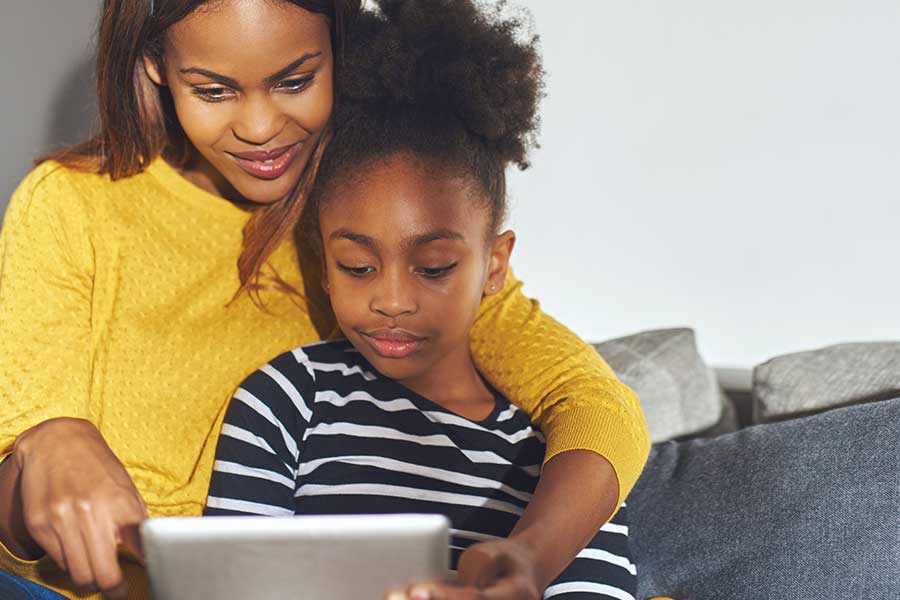At this point, it’s important we talk with our children about the COVID-19 pandemic, also known as the 2019 novel Coronavirus
As you might imagine, it’s best to project a reassuring stance and calm tone. We should also advise them that most people who get sick from it experience cold or flu-like symptoms, but other than that what do we say about an infectious disease? How do we know if we’re saying too much about it? Is there anything children themselves should do?
We spoke with MCR Health’s Director of Behavioral Health Services, Dr. Bertoldi to determine the best ways to discuss the Coronavirus with children. In this article, we’ll share her insights, so you can be prepared.
DON’T OVER-COMMUNICATE
Dr. Bertoldi advises that discussions should be guided by each individual child’s level of interest. If your child asks why they haven’t seen their grandparents lately, explain how social distancing protects the elderly and chronically ill from the respiratory disease. “If your child isn’t interested in a discussion,” says Dr. Bertoldi, “or if they’re not the sort of child who constantly asks questions about everything, or if they’re too young to understand, then leave this subject alone.” For this type of child’s peace of mind, it may be best that they not carry the weight of this issue.
“With these sorts of children,” Dr. Bertoldi suggests, “you’ll need to communicate to them that it is vitally important that if someone gets sick, they need to be a good patient and do what the doctor says.”
Stress the importance of following your directions about what to do and what not to do. They will look to you for direction, so make sure you can provide it.
OFFER SAFETY, BUT BE HONEST
When we promise to protect our children, guaranteeing that they will never be negatively affected by anything, they often feel invincible. This can lead to your children dismissing safety rules and preventative measures about the Coronavirus.
“To avoid this,” Dr. Bertoldi advises, “we shouldn’t help our children feel safe at the expense of being truthful about COVID-19.” We cannot afford to inadvertently minimize this pandemic and put our children’s lives at risk. We need to be honest about the Coronavirus.
Depending on the child, this may mean sharing the reason why your family is limiting close contact with others through social distancing. It is also important to discuss which groups of people are most vulnerable to the disease.
What’s more, we should also be transparent about the fact that we don’t know everything concerning the Coronavirus. Dr. Bertoldi suggests, “If children ask questions that we can’t answer, looking up the answer together is a great idea.”
This is helpful for children to know where they can find more information if they are interested. The best resources for them to explore will be the Centers for Disease Control and Prevention website and/or their local Department of Public Health website.
LAY DOWN THE LAW
Without real direction on what to do, kids may get paranoid about the Coronavirus. That’s why we should provide children with tips and preventative measures they can take to stay safe and healthy.
“Doing things that are within our control can help keep everyone in the family healthy,” says Dr. Bertoldi.
One of the most important measures kids can take is handwashing. Dr. Bertoldi recommends, “effective hand washing means rubbing soap and water together for at least 20 seconds.” If the child is very young, have them sing happy birthday while handwashing This will help lower the risk of spreading germs.
To that point, children can also help eliminate germs by cleaning and disinfecting frequently touched objects and surfaces. Having designated areas to keep germ-free may even help children feel more safe and secure because they’ll know the areas are cleaned and disinfected since they’ll be doing the work themselves.
Parents can introduce a lot of great preventative measures to their children that can ease anxiety while combatting the community spread of this respiratory disease.
REMEMBER
Making these efforts to effectively communicate with our children will comfort them and offer them peace of mind in these uncertain times. For now, the CDC website has not recognized children as a more vulnerable group to the Coronavirus. However, new information is constantly developing.
Stay up to date on this pandemic by visiting our Coronavirus Resource Center. Remember, if you or your children exhibit symptoms, such as a fever, cough, or shortness of breath, please limit exposure to others and call your primary care provider or 866-779-6121.

